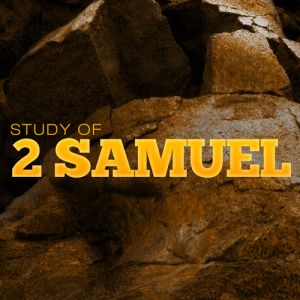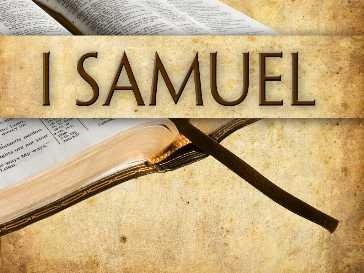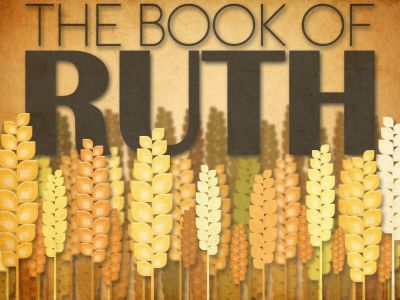2 Samuel
By Pastor Frank Gallegos, Sr. on May 06, 2015 in
Church News

Book of 2 Samuel
Author: The Book of 2 Samuel does not identify its author. It could not be the Prophet Samuel, since he died in 1 Samuel. Possible writers include Nathan and Gad (see 1 Chronicles 29:29).
Date of Writing: Originally, the books of 1 and 2 Samuel were one book. The translators of the Septuagint separated them, and we have retained that separation ever since. The events of 1 Samuel span approximately 100 years, from c. 1100 B.C. to c. 1000 B.C. The events of 2 Samuel cover another 40 years. The date of writing, then, would be sometime after 960 B.C.
Purpose of Writing: 2 Samuel is the record of King David’s reign. This book places the Davidic Covenant in its historical context.
Key Verses: “Your house and your kingdom will endure forever before me; your throne will be established forever” (2 Samuel 7:16).
“But the king covered his face, and the king cried with a loud voice, O my son Absalom, O Absalom, my son, my son!” (2 Samuel 19:4).
““The LORD is my rock, my fortress and my deliverer; my God is my rock, in whom I take refuge, my shield and the horn of my salvation. He is my stronghold, my refuge and my savior—from violent men you save me. I call to the LORD, who is worthy of praise, and I am saved from my enemies” (2 Samuel 22:2-4).
Brief Summary: The book of 2 Samuel can be divided into two main sections—David’s triumphs (chapters 1-10) and David’s troubles (chapters 11-20). The last part of the book (chapters 21-24) is a non-chronological appendix which contains further details of David’s reign.
The book begins with David receiving news of the death of Saul and his sons. He proclaims a time of mourning. Soon afterward, David is crowned king over Judah, while Ish-bosheth, one of Saul’s surviving sons, is crowned king over Israel (chapter 2). A civil war follows, but Ish-bosheth is murdered, and the Israelites ask David to reign over them as well (chapters 4-5).
David moves the country’s capital from Hebron to Jerusalem and later moves the Ark of the Covenant (chapters 5-6). David’s plan to build a temple in Jerusalem is vetoed by God, who then promises David the following things: 1) David would have a son to rule after him; 2) David’s son would build the temple; 3) the throne occupied by David’s lineage would be established forever; and 4) God would never take His mercy from David’s house (2 Samuel 7:4-16).
David leads Israel to victory over many of the enemy nations which surrounded them. He also shows kindness to the family of Jonathan by taking in Mephibosheth, Jonathan’s crippled son (chapters 8-10).
Then David falls. He lusts for a beautiful woman named Bathsheba, commits adultery with her, and then has her husband murdered (chapter 11). When Nathan the prophet confronts David with his sin, David confesses, and God graciously forgives. However, the Lord tells David that trouble would arise from within his own household.
Trouble does come when David’s firstborn son, Amnon, rapes his half-sister, Tamar. In retaliation, Tamar’s brother Absalom kills Amnon. Absalom then flees Jerusalem rather than face his father’s anger. Later, Absalom leads a revolt against David, and some of David’s former associates join the rebellion (chapters 15-16). David is forced out of Jerusalem, and Absalom sets himself up as king for a short time. The usurper is overthrown, however, and—against David’s wishes—is killed. David mourns his fallen son.
A general feeling of unrest plagues the remainder of David’s reign. The men of Israel threaten to split from Judah, and David must suppress another uprising (chapter 20).
The book’s appendix includes information concerning a three-year famine in the land (chapter 21), a song of David (chapter 22), a record of the exploits of David’s bravest warriors (chapter 23), and David’s sinful census and the ensuing plague (chapter 24).
Foreshadowings: The Lord Jesus Christ is seen primarily in two parts of 2 Samuel. First, the Davidic Covenant as outlined in 2 Samuel 7:16: “Your house and your kingdom will endure forever before me; your throne will be established forever” and reiterated in Luke 1:31-33 in the words of the angel who appeared to Mary to announce Jesus’ birth to her: “He will be great and will be called the Son of the Most High. The Lord God will give him the throne of his father David, and he will reign over the house of Jacob forever; his kingdom will never end.” Christ is the fulfillment of the Davidic Covenant; He is the Son of God in the line of David who will reign forever.
Second, Jesus is seen in the song of David at the end of his life (2 Samuel 22:2-51). He sings of his rock, fortress and deliverer, his refuge and savior. Jesus is our Rock (1 Corinthians 10:4; 1 Peter 2:7-9), the Deliverer of Israel (Romans 11:25-27), the fortress to whom we “have fled for refuge to lay hold upon the hope set before us” (Hebrews 6:18 KJV), and our only Savior (Luke 2:11; 2 Timothy 1:10).
Practical Application: Anyone can fall. Even a man like David, who truly desired to follow God and who was richly blessed by God, was susceptible to temptation. David’s sin with Bathsheba should be a warning to all of us to guard our hearts, our eyes and our minds. Pride over our spiritual maturity and our ability to withstand temptation in our own strength is the first step to a downfall (1 Corinthians 10:12).
God is gracious to forgive even the most heinous sins when we truly repent. However, healing the wound caused by sin does not always erase the scar. Sin has natural consequences, and even after he was forgiven, David reaped what he had sown. His son from the illicit union with another man’s wife was taken from him (2 Samuel 12:14-24) and David suffered the misery of a break in his loving relationship with his heavenly Father (Psalms 32 and 51). How much better to avoid sin in the first place, rather than having to seek forgiveness later!
Read more: http://www.gotquestions.org/Book-of-2-Samuel.html#ixzz3Y4bp8Smn
1 Samuel
By Pastor Frank Gallegos, Sr. on April 27, 2015 in
Church News

Book of 1 Samuel
Author: The author is anonymous. We know that Samuel wrote a book (1 Samuel 10:25), and it is very possible that he wrote part of this book as well. Other possible contributors to 1 Samuel are the prophets/historians Nathan and Gad (1 Chronicles 29:29).
Date of Writing: Originally, the books of 1 and 2 Samuel were one book. The translators of the Septuagint separated them, and we have retained that separation ever since. The events of 1 Samuel span approximately 100 years, from c. 1100 B.C. to c. 1000 B.C. The events of 2 Samuel cover another 40 years. The date of writing, then, would be sometime after 960 B.C.
Purpose of Writing: First Samuel records the history of Israel in the land of Canaan as they move from the rule of judges to being a unified nation under kings. Samuel emerges as the last judge, and he anoints the first two kings, Saul and David.
Key Verses: “But when they said, ‘Give us a king to lead us,’ this displeased Samuel; so he prayed to the LORD. And the LORD told him: ‘Listen to all that the people are saying to you; it is not you they have rejected, but they have rejected me as their king’” (1 Samuel 8:6-7).
“’You acted foolishly,’ Samuel said. ‘You have not kept the command the LORD your God gave you; if you had, he would have established your kingdom over Israel for all time. But now your kingdom will not endure; the LORD has sought out a man after his own heart and appointed him leader of his people, because you have not kept the LORD’s command’” (1 Samuel 13:13-14).
“But Samuel replied: ‘Does the LORD delight in burnt offerings and sacrifices as much as in obeying the voice of the LORD? To obey is better than sacrifice, and to heed is better than the fat of rams. For rebellion is like the sin of divination, and arrogance like the evil of idolatry. Because you have rejected the word of the LORD, he has rejected you as king’” (1 Samuel 15:22-23).
Brief Summary: The book of 1 Samuel can be neatly divided into two sections: the life of Samuel (chapters 1-12) and the life of Saul (chapters 13-31).
The book starts with the miraculous birth of Samuel in answer to his mother’s earnest prayer. As a child, Samuel lived and served in the temple. God singled him out as a prophet (3:19-21), and the child’s first prophecy was one of judgment on the corrupt priests.
The Israelites go to war with their perennial enemies, the Philistines. The Philistines capture the ark of the covenant and are in temporary possession of it, but when the Lord sends judgment, the Philistines return the ark. Samuel calls Israel to repentance (7:3-6) and then to victory over the Philistines.
The people of Israel, wanting to be like other nations, desire a king. Samuel is displeased by their demands, but the Lord tells him that it is not Samuel’s leadership they are rejecting, but His own. After warning the people of what having a king would mean, Samuel anoints a Benjamite named Saul, who is crowned in Mizpah (10:17-25).
Saul enjoys initial success, defeating the Ammonites in battle (chapter 11). But then he makes a series of missteps: he presumptuously offers a sacrifice (chapter 13), he makes a foolish vow at the expense of his son Jonathan (chapter 14), and he disobeys the Lord’s direct command (chapter 15). As a result of Saul’s rebellion, God chooses another to take Saul’s place. Meanwhile, God removes His blessing from Saul, and an evil spirit begins goading Saul toward madness (16:14).
Samuel travels to Bethlehem to anoint a youth named David as the next king (chapter 16). Later, David has his famous confrontation with Goliath the Philistine and becomes a national hero (chapter 17). David serves in Saul’s court, marries Saul’s daughter, and is befriended by Saul’s son. Saul himself grows jealous of David’s success and popularity, and he attempts to kill David. David flees, and so begins an extraordinary period of adventure, intrigue, and romance. With supernatural aid, David narrowly but consistently eludes the bloodthirsty Saul (chapters 19-26). Through it all, David maintains his integrity and his friendship with Jonathan.
Near the end of the book, Samuel has died, and Saul is a lost man. On the eve of a battle with Philistia, Saul seeks for answers. Having rejected God, he finds no help from heaven, and he seeks counsel from a medium instead. During the seance, Samuel’s spirit rises from the dead to give one last prophecy: Saul would die in battle the next day. The prophecy is fulfilled; Saul’s three sons, including Jonathan, fall in battle, and Saul commits suicide.
Foreshadowings: The prayer of Hannah in 1 Samuel 2:1-10 makes several prophetic references to Christ. She extols God as her Rock (v. 2), and we know from the gospel accounts that Jesus is the Rock upon whom we should build our spiritual houses. Paul refers to Jesus as the “rock of offense” to the Jews (Romans 9:33). Christ is called the “spiritual Rock” who provided spiritual drink to the Israelites in the wilderness just as He provides “living water” to our souls (1 Corinthians 10:4; John 4:10). Hannah’s prayer also makes reference to the Lord who will judge the ends of the earth (v. 2:10), while Matthew 25:31-32 refers to Jesus as the Son of Man who will come in glory to judge everyone.
Practical Application: The tragic story of Saul is a study in wasted opportunity. Here was a man who had it all—honor, authority, riches, good looks, and more. Yet he died in despair, terrified of his enemies and knowing he had failed his nation, his family, and his God.
Saul made the mistake of thinking he could please God through disobedience. Like many today, he believed that a sensible motive will compensate for bad behavior. Perhaps his power went to his head, and he began to think he was above the rules. Somehow he developed a low opinion of God’s commands and a high opinion of himself. Even when confronted with his wrongdoing, he attempted to vindicate himself, and that’s when God rejected him (15:16-28).
Saul’s problem is one we all face—a problem of the heart. Obedience to God’s will is necessary for success, and if we in pride rebel against Him, we set ourselves up for loss.
David, on the other hand, did not seem like much at first. Even Samuel was tempted to overlook him (16:6-7). But God sees the heart and saw in David a man after His own heart (13:14). The humility and integrity of David, coupled with his boldness for the Lord and his commitment to prayer, set a good example for all of us.
Read more: http://www.gotquestions.org/Book-of-1-Samuel.html#ixzz3Y4bVmCr7
Ruth
By Pastor Frank Gallegos, Sr. on April 26, 2015 in
Church News

Book of Ruth
Author: The Book of Ruth does not specifically name its author. The tradition is that the Book of Ruth was written by the Prophet Samuel.
Date of Writing: The exact date the Book of Ruth was written is uncertain. However, the prevalent view is a date between 1011 and 931 B.C.
Purpose of Writing: The Book of Ruth was written to the Israelites. It teaches that genuine love at times may require uncompromising sacrifice. Regardless of our lot in life, we can live according to the precepts of God. Genuine love and kindness will be rewarded. God abundantly blesses those who seek to live obedient lives. Obedient living does not allow for “accidents” in God’s plan. God extends mercy to the merciful.
Key Verses: Ruth 1:16, “But Ruth replied, ‘Don’t urge me to leave you or to turn back from you. Where you go I will go, and where you stay I will stay. Your people will be my people and your God my God.’”
Ruth 3:9, “‘Who are you?’ he asked. ‘I am your servant Ruth,’ she said. ‘Spread the corner of your garment over me, since you are a kinsman-redeemer.’”
Ruth 4:17, “The women living there said, ‘Naomi has a son.’ And they named him Obed. He was the father of Jesse, the father of David.”
Brief Summary: The setting for the Book of Ruth begins in the heathen country of Moab, a region northeast of the Dead Sea, but then moves to Bethlehem. This true account takes place during the dismal days of failure and rebellion of the Israelites, called the period of the Judges. A famine forces Elimelech and his wife, Naomi, from their Israelite home to the country of Moab. Elimelech dies and Naomi is left with her 2 sons, who soon marry 2 Moabite girls, Orpah and Ruth. Later both of the sons die, and Naomi is left alone with Orpah and Ruth in a strange land. Orpah returns to her parents, but Ruth determines to stay with Naomi as they journey to Bethlehem. This story of love and devotion tells of Ruth’s eventual marriage to a wealthy man named Boaz, by whom she bears a son, Obed, who becomes the grandfather of David and the ancestor of Jesus. Obedience brings Ruth into the privileged lineage of Christ.
Foreshadowings: A major theme of the Book of Ruth is that of the kinsman-redeemer. Boaz, a relative of Naomi on her husband’s side, acted upon his duty as outlined in the Mosaic Law to redeem an impoverished relative from his or her circumstances (Lev. 25:47-49). This scenario is repeated by Christ, who redeems us, the spiritually impoverished, from the slavery of sin. Our heavenly Father sent His own Son to the cross so that we might become children of God and brothers and sisters of Christ. By being our Redeemer, He makes us His kinsmen.
Practical Application: The sovereignty of our great God is clearly seen in the story of Ruth. He guided her every step of the way to become His child and fulfill His plan for her to become an ancestor of Jesus Christ (Matthew 1:5). In the same way, we have assurance that God has a plan for each of us. Just as Naomi and Ruth trusted Him to provide for them, so should we.
We see in Ruth an example of the virtuous woman of Proverbs 31. In addition to being devoted to her family (Ruth 1:15-18; Proverbs 31:10-12) and faithfully dependent upon God (Ruth 2:12; Proverbs 31:30), we see in Ruth a woman of godly speech. Her words are loving, kind and respectful, both to Naomi and to Boaz. The virtuous woman of Proverbs 31 “opens her mouth with wisdom, and on her tongue is the law of kindness” (v. 26). We could search far and wide to find a woman today as worthy of being our role model as Ruth.
Read more: http://www.gotquestions.org/Book-of-Ruth.html#ixzz3Y4bBsBri
Page 17 of 19 pages ‹ First < 15 16 17 18 19 >




